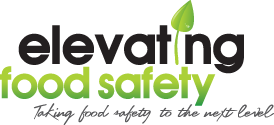The rising incidence of food allergies in Australia has important implications for ingredients suppliers and their customers, as Brooke Beach of food safety consulting and training firm Elevating Food Safety writes.
Experts suggest that one in 10 children born in Australia today will develop a food allergy. Food Allergy Week in May sought to raise community awareness of this growing problem, and as customer expectations with respect to allergens increase, the pressure will be on Australian ingredients and product manufacturers to develop appropriate controls to better manage this risk.
Food legislation in Australia already mandates labelling of ingredients containing allergenic substances. Allergy sufferers, however, also want more foods that meet their needs – and that means ensuring potential allergens are appropriately managed across the business. Having effective allergen controls in place also mitigates the significant cost of getting it wrong. A third of the 663 recalls in Australia between 2002 and 2011 were due to labelling issues, including undeclared allergens. The onus is on manufacturers to review and conduct regular allergen risk assessments. Here are the key areas to consider.
Sourcing ingredients
 One of the most critical areas is raw material sourcing. Food manufacturers must ensure their suppliers have clearly defined the raw materials used in their products. Though ingredient suppliers have responsibilities under the Food Standards Code to provide accurate allergen information, errors may still go undetected. The approved supplier program of a company’s food safety and quality management system should be supported with regular testing of ingredients where allergen-free claims are made. Manufacturers must also review raw material information regularly with suppliers to check whether there have been any changes to source, supply or origin, and whether new ingredients have been introduced to ensure end-product allergen labelling remains valid.
One of the most critical areas is raw material sourcing. Food manufacturers must ensure their suppliers have clearly defined the raw materials used in their products. Though ingredient suppliers have responsibilities under the Food Standards Code to provide accurate allergen information, errors may still go undetected. The approved supplier program of a company’s food safety and quality management system should be supported with regular testing of ingredients where allergen-free claims are made. Manufacturers must also review raw material information regularly with suppliers to check whether there have been any changes to source, supply or origin, and whether new ingredients have been introduced to ensure end-product allergen labelling remains valid.
Procurement teams also need to ensure appropriate protocols are followed when purchasing raw materials. Product quality must be fully ascertained before they approve a supplier to supply any new raw material, to eliminate potential undeclared allergens being introduced.
Storage and spillage handling
Management of storage areas is critical to maintaining the allergen-free status of procured ingredients and packaging. Processes should be robust and centred around minimising damage to stored ingredients and packaging and potential spillage of allergen-containing ingredients. These spillages should be treated as potential contamination issues and handled diligently by employees.
Manufacturers should also seek support from suppliers where special labelling is required to identify allergens on stock deliveries, as pallet labels can often assist storemen in identifying and segregating these important ingredients upon receipt.
POSSIBLE processing problems
A food manufacturer also needs to consider the planning of processing lines to ensure allergen cross-contamination is eliminated or reduced to an acceptable level. Where possible, allergen-free processing lines should be segregated from allergen processing lines. Where this is not possible, businesses need to identify potential areas of contamination and develop, implement and regularly verify controls to ensure cross contamination is minimised.
Other important areas to scrutinise include staff and ingredient movement controls, cleaning of equipment, designating colour-coded handling, maintenance, air supply and filtration.
Investing in knowledge
People can be the greatest strength of any business. Training staff to understand their role in allergen handling is therefore critical to the successful implementation of any program. Clear procedures outlining the requirements will help to reduce the issue of role ambiguity. Regular refresher training should be undertaken for all staff to reinforce these requirements and address any areas of concern. The expertise of key staff members should always be considered when developing allergen controls to ensure they remain effective and appropriate to the business operations.
About the author
Brooke Beach is degree qualified in food technology and business and has 10 years’ retail experience with Woolworths. She is a food safety consultant with Elevating Food Safety, a quality and food safety consulting company offering boutique training, process and nutritional services.
















Get Social